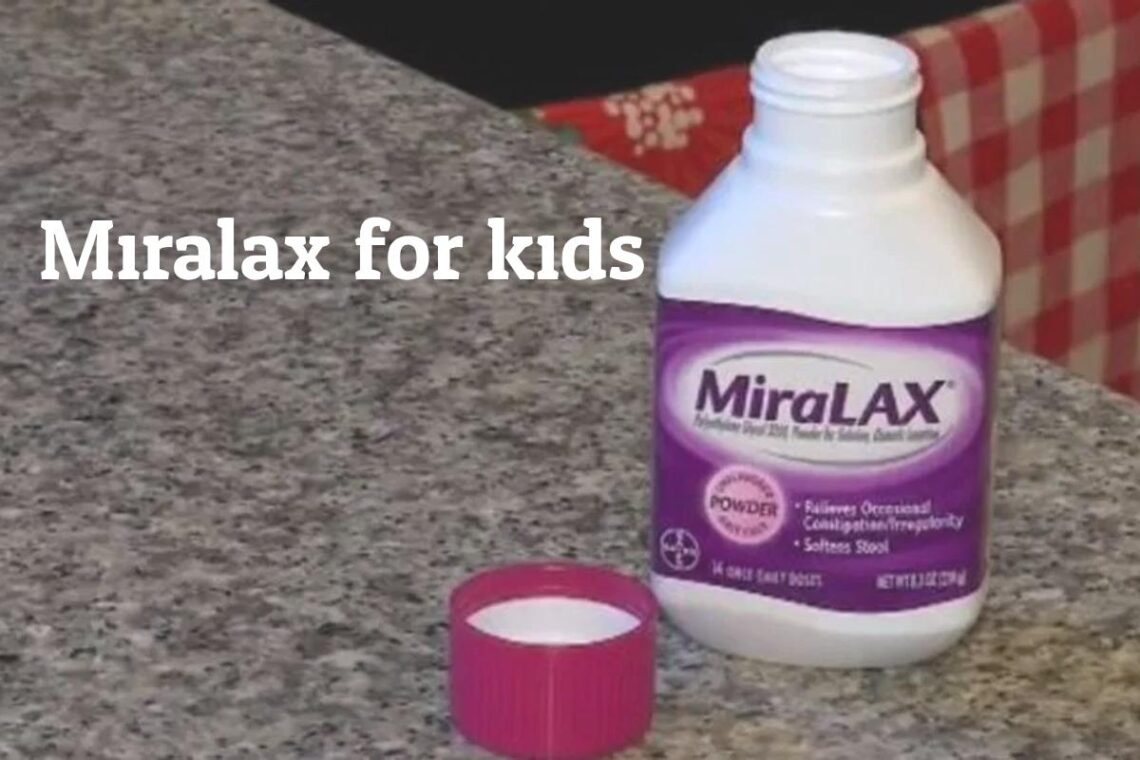What is Miralax?
Miralax for Kids – Miralax is an over-the-counter laxative with polyethylene glycol 3350 (PEG) as its main ingredient. It’s a powder that you mix with drinks to relieve constipation by softening stool and making it easier to pass.
How Miralax Works
Treating Constipation
Miralax helps the digestive tract hold more water, which also increases water content in the stool. This makes bowel movements easier and more frequent.
Causes of Constipation in Children
Constipation in kids can be caused by:
- Holding their stool
- Certain medications
- Diet lacking fiber
- Insufficient water intake
Using Miralax
Dosage and Administration
Adults can use the measuring cap provided, while children may need a different dose as prescribed by a healthcare provider. Miralax typically takes 24 to 48 hours to start working.
Who Can Take Miralax?
While labeled for those 17 and older, Miralax is often recommended off-label for younger children. The North American Society (NAS) for Pediatric Gastroenterology, Hepatology, and Nutrition supports its use in kids.
Safety Concerns for Children
Mixed Opinions
Healthcare providers generally consider Miralax safe for children. However, some parents have reported unexpected behavioral side effects.
FDA Investigation
Due to parental concerns, the FDA funded a study in 2014 to investigate Miralax’s safety in children. The study is still ongoing.
Side Effects of Miralax
Common Side Effects
Miralax can cause abdominal-related side effects such as:
- Bloating
- Stomach cramping
- Gas
- Nausea
Reported Behavioral Side Effects
Some parents have reported behavioral changes in their children, including:
- Anxiety
- Mood swings
- Anger
- Abnormal behavior
It’s important to note that there’s currently no scientific evidence linking these behavioral changes to Miralax use.
Alternatives to Miralax for Children
Natural Methods
To help with constipation, consider:
- Ensuring adequate hydration
- Increasing fiber intake (e.g., pears, apples, oatmeal, lentils, carrots)
- Encouraging physical activity
- Establishing a regular toilet schedule
Other Laxatives
If natural methods don’t work, other options include:
- Milk of magnesia
- Mineral oil
However, these alternatives may have unpleasant side effects and aren’t FDA-approved for long-term use in children.
Conclusion
While Miralax for Kids is a common treatment for constipation in children, concerns about its safety persist. The Parents should consult with doctor to determine the best approach for their child’s constipation, considering both the benefits and potential risks of various treatment options.

